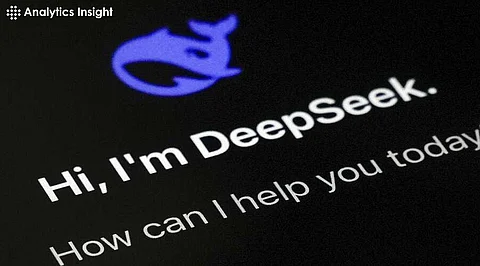

DeepSeek AI has been at the center of controversy and regulatory scrutiny globally over the past few months. With its sophisticated artificial intelligence capabilities, DeepSeek AI provides robust data analysis and insights, but its methods have been of great concern to regulators when it comes to data privacy, ethical practices, and adherence to current laws.
This piece delves into the reasons why DeepSeek AI has faced a backlash and what this means for the wider tech sector.
One of the main reasons regulators are looking into DeepSeek AI is data privacy. The platform's capacity to gather, analyze, and use large amounts of personal data has raised concerns regarding how this data is treated. Most users do not know how their data is being utilized, which raises questions regarding consent and transparency.
Regulatory agencies are giving more importance to data protection legislation, like the General Data Protection Regulation (GDPR) in the European Union and other parts of the world. The regulations require strict policies on how businesses gather and process personal data. Some people say that DeepSeek AI is not entirely compliant with the rules, which creates concerns about the possible infringement that can result in significant fines and legal actions.
In addition to data privacy, ethical issues with DeepSeek AI's algorithms have also emerged. The platform uses machine learning methods that may inadvertently perpetuate biases in the training data. This raises fairness and accountability issues in decision-making processes based on AI.
Regulators are especially worried about the effect biased algorithms have on at-risk groups. For example, if DeepSeek AI's analytics are applied in fields such as hiring or lending, biased results might result in discrimination against specific groups. Therefore, regulators are advocating for stricter regulation of AI systems so they comply with ethical guidelines that support fairness and equality.
The second issue that has escalated regulatory frustration is the apparent deficiency of transparency on how DeepSeek AI operates. Most regulatory organizations believe there should be complete transparency regarding explaining how businesses' algorithms make decisions. However, DeepSeek AI has attracted criticism for non-transparent operations as it does not make clear for regulators and its users the path that data travels through to enable decisions to be made.
This transparency void can undermine faith in AI products. When data subjects are left wondering how data is being manipulated or how algorithms make decisions, they might stay away from accessing such platforms themselves. Regulators acknowledge this setback and are compelling AI firms to be more open to encouraging accountability as well as reinforcing consumer trust.
With changes in regulations on data privacy and AI ethics, firms such as DeepSeek AI are bound to encounter high compliance issues. Implementation of new legislation can be cumbersome and capital-intensive. Most startups will find it difficult to match changing legislation while prioritizing innovation and expansion.
Regulators are annoyed with the compliance efforts of tech firms that do not emphasize compliance above their business concerns. They opine that taking compliance efforts seriously would be paramount if a safe tech ecosystem needs to be established. DeepSeek AI is under immense pressure to reflect its intentionality towards compliance through strong policy measures and procedures, with regulatory guidelines being the guideline.
The legal framework for AI technologies is also highly disparate in various regions. Whereas some nations have created all-encompassing systems to regulate AI, others are just formulating their strategy. This is a patchwork system that will be confusing to international companies.
DeepSeek AI has to contend with these nuances as it increases its presence in new markets. Non-adherence to local laws may lead to legal battles or imposing restrictions on its operations. As regulators across the globe increase their focus on AI technologies, firms such as DeepSeek have to be on their guard to interpret differences in regulatory requirements across regions.
Despite its challenges, DeepSeek AI has the chance to convert criticism into positive reform. By keeping data privacy at the forefront, prioritizing ethics, being open and transparent, and making extra efforts to comply, the firm can set the standard for ethical AI development.
Proactive engagement with regulators can also assist in establishing trust and cooperation between regulatory authorities and tech firms. Through involvement in discussions on best practices and collaboration on insights into the responsible use of data, DeepSeek AI can positively impact the changing regulatory environment.
The DeepSeek AI backlash underscores the increasing issues of data privacy, ethics, transparency, and compliance in the tech sector. As regulators step up their examination of AI technologies, businesses such as DeepSeek need to confront these issues directly.
By adopting responsible operations and interacting with regulatory systems, DeepSeek AI is not only able to mitigate risk but also provide a good example for others to follow within the industry. The future of technology hinges on a balanced process that emphasizes innovation but protects user rights and ethical norms.
